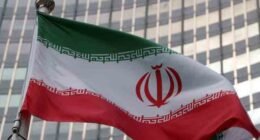In a bold move to fully convert the banking system to Shariah-based regulations within five years, the government has set its sights on raising Rs670 billion in fresh domestic debt over the next three months. This ambitious endeavor will be facilitated through the launch of Ijara sukuk, with the newly identified Islamabad Expressway serving as the underlying asset.
An industry official has estimated the value of Islamabad Expressway, spanning from Faisal Mosque Chowk to T-Chowk near Rawat, at an impressive Rs900 billion. It is expected that this substantial asset will be fully utilised for sukuk issuance within the next six to nine months.
Under the initial plans, the government aims to raise Rs670 billion by launching variable rental income and fixed rental income-based Ijara Sukuk with three different tenures: 1-year, 3-year, and 5-year. This strategic initiative will take place between June and August 2023.
In a notification released on Monday, the central bank revealed that the government has identified three key assets for this purpose: Islamabad Expressway (from Faisal Mosque Chowk to T-Chowk near Rawat), Islamabad Metro (Islamabad Portion), and Islamabad Sports Complex.
According to the industry source, the government is currently in the process of assessing the value of the remaining two land assets, which will also be utilised for the issuance of sukuk in the near future.
Speaking to The Express Tribune, Ahmed Ali Siddiqui, the SEVP & Head of Shariah Compliance at Meezan Bank, expressed his approval of the new sukuk launch as “a right step in the right direction.” Siddiqui said that this move will play a crucial role in achieving the government’s target of converting interest-based domestic debt into interest-free debt by December 2027.
He further highlighted the government’s increased frequency of sukuk issuances, which now occur almost every month, aligning with auctions for conventional government debt instruments such as T-bills and Pakistan Investment Bonds (PIBs). This adjustment addresses a longstanding demand from Islamic banks and reflects the government’s commitment to promoting Islamic finance.
The market share of Islamic banks, based on deposits, currently stands at 22%, and Siddiqui predicts that this figure will rise to 30-35% by the end of 2023 as part of the five-year plan.
However, when it comes to domestic debt obtained from banks and financial institutions, the share of sukuk-based financing amounts to Rs3 trillion (8-10%) of the total lending, he said.










